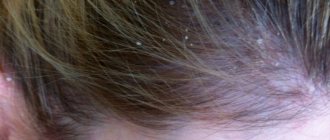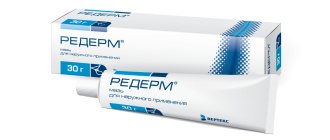June 29, 2020
Psoriasis with its entire appearance speaks of its “contagiousness”. Pink raised plaques all over the body, flaky skin, unsightly cloudy nails with grooves involuntarily instill fear of infection in others. Sometimes ordinary people confuse the disease with eczema or lichen, and ignorance in any case raises many questions and fears.
Is psoriasis contagious?
The external manifestations of the disease in this case are deceptive; doctors know for sure that psoriasis is not contagious, it is not transmitted from person to person either by airborne droplets, or by household or sexual contact.
That is, even if you hug a person with psoriasis or touch the plaques with your hands, it is impossible to become infected. If someone who has been in contact with the patient ever develops psoriasis, then this will be an independent event.
Psoriasis is not transmitted through clothing; it is impossible to become infected with it in a store fitting room. There is also no household route of transmission. If you meet a person who has manifestations of psoriasis in the pool, in the bathhouse, not on the beach, in the gym, rest assured, there is no danger of infection in this case.
Why are people afraid of getting psoriasis?
Peeling silvery plaques on exposed skin or psoriasis-affected nails are visible to others.
People are programmed to experience fear of phenomena that are incomprehensible and unknown to them, that is, of things that could potentially threaten their life or health. This fear was acquired during evolution.
In addition to this fear “enshrined in the genes,” parents teach us to avoid encountering potential dangers. For example, do not cross the road at a red light or, if we talk about infections, wash your hands after going outside and before eating.
People may also be confused by another name for psoriasis: lichen planus. The word “lichen” itself may be associated with a contagious disease. After all, for example, ringworm is also lichen, but, unlike psoriasis, a non-infectious disease, it is a fungal infection that children usually catch from street kittens or puppies.
Where does psoriasis come from and how does it arise?
We found that psoriasis:
- not sexually transmitted;
- not contagious by shaking hands, hugging, touching or other bodily contact;
- not transmitted through household contact;
- does not threaten healthy people in the bathhouse, fitting room, or swimming pool;
- It is not transmitted through the air, through water or dirty hands, as it is not infectious in nature.
Why then do people get sick? Psoriasis is an autoimmune disease, that is, caused exclusively by internal characteristics of the body. Autoimmune diseases are the result of the fact that cells that are supposed to protect the body from a variety of external threats, for some reason, begin to destroy the tissues of their own body, seeing them as a threat. Such diseases are never contagious.
Why were people afraid of getting psoriasis before?
Psoriasis and leprosy (leprosy) have been known to mankind since biblical times, and then psoriasis was confused with leprosy.
In the Old Testament in the Fourth Book of Kings (5:27) there is a direct reference to psoriasis, and it is called leprosy there: “Let the leprosy of Naaman come upon you and your descendants forever. And he came out from him, white with leprosy, like snow.” The word used is "tsaraat" which translates to leprosy and was also used to denote punishment or "ritual uncleanness".
The biblical prophet Elisha refuses the gifts of the Syrian commander Naaman. Naaman offers gifts in gratitude for getting rid of psoriasis, then considered leprosy.
The ancient Egyptians and neighboring peoples also often erroneously used the word “leprosy” to refer to psoriasis.
The famous ancient Greek physician and philosopher Hippocrates grouped dry scaly skin lesions under the term “lopoi,” which likely referred to both psoriasis and leprosy.
At the beginning of our era, the ancient Roman physician and philosopher Gallen first used the term “psoriasis vulgaris”, derived from the Greek “psora” (itching), to refer to a skin disease. To treat it, Gallen prescribed arsenic.
But the confusion between psoriasis and leprosy continued. Patients with psoriasis continued to be treated in various cruel ways, expelled from the church and community, and even burned at the stake by order of the French King Philip V in the 14th century for far-fetched reasons.
This continued until the Renaissance.
Psoriasis as a separate disease was first described by the English physician and founder of dermatology Robert Willan at the end of the 18th century. He described two forms of the disease: Leprosa Graecorum - with a predominance of scaly plaques, and Psora Leprosa - a more active form of the disease with a predominance of rash. And again I used the word “leprosy” in the title...
Ferdinand Karl Franz Schwarzmann Ritter von Hebra is the famous Austrian dermatologist who gave psoriasis its modern name.
Psoriasis and leprosy continued to be confused until 1841, when the Austrian physician Ferdinand von Hebra gave the modern name of the disease - psoriasis, psoriasis, and the word "leprosy" (leprosy) left the name of the disease forever.
Is psoriasis inherited?
But the prerequisite for such immunity to work are some genetic mutations and breakdowns in genes.
Therefore, if you answer the question whether psoriasis is inherited by children, the answer will be more likely yes than no. Of course, illness in parents does not guarantee psoriasis in children, but the predisposition is passed on, and family cases are evidence of this. The chance of transmission increases if both parents suffer from psoriasis. Under certain triggers, the autoimmune process can also start in children. But dermatology does not stand still; doctors have made significant progress in the treatment of psoriasis. This is not a disease that can affect reproductive plans; psoriasis can be kept under control. June 29, 2020
Author of the article: dermatologist Mak Vladimir Fedorovich
PUVA therapy and spa treatment for psoriasis
I was prescribed PUVA therapy. What is the chance that treatment will help me get rid of psoriasis?
This method of therapy, when the patient receives a photosensitizer that increases the sensitivity of his skin to ultraviolet rays, is not recognized by all dermatologists, since the treatment method can cause mutation of oncogenes. And if the patient had family members who suffered from cancer, there is a risk that PUVA therapy will provoke cancer in him too. In addition, there is another side effect - PUVA therapy inhibits the hematopoietic system.
I heard from other patients that for psoriasis, treatment at the Dead Sea resorts is effective. What explains the salt water effect?
The uniqueness of Israel is that the sun there is more gentle and soft due to the fact that the Dead Sea coast is the lowest landmass on Earth. But salt water itself, as well as baths of celandine and string, which traditional medicine actively recommends, will not help with psoriasis. On the contrary, they interfere with the treatment and restoration of the skin barrier at the site of psoriatic plaques. Among my patients there were those who recklessly, at the moment of exacerbation of the disease, went to the Dead Sea, and, as they say, from winter to summer. Such trips only exacerbated the problem.
Why do doctors prescribe such different treatments for psoriasis?
Recommendations for treatment are not similar, because there are different forms of psoriasis: regular (plaque), exudative, pustular, palmoplantar, inverse (“upside down”), seborrheic, psoriatic erythroderma, psoriatic arthritis... In addition, the psoriatic process is differentiated by severity and prevalence.
At the first signs of psoriasis, sometimes it is enough to cure a chronic infection (often sore tonsils, an inflamed tooth). As I already said, stress is very dangerous for the patient, so patients need sedatives.
If the patient has less than 10% of the skin affected, the dermatologist will try to eliminate provoking factors and carry out the necessary external treatment. If the psoriasis is extensive (at least 20% of the skin is involved in the process) or the patient already has psoriatic arthritis, psoriatic erythroderma, exudative and pustular psoriasis, the doctor will prescribe systemic immunosuppressive agents: methotrexate, cyclosporine A, synthetic retinoids, various options for phototherapy.
And the most effective remedy is genetically engineered monoclonal antibodies, drugs that most accurately inhibit some anti-inflammatory cytokines. Biological drugs have a powerful therapeutic and very selective effect on the main parts of the mechanism of psoriasis development, but have minimal impact on the normal mechanisms of the immune response. After using drugs containing monoclonal antibodies in treatment, patients quickly experience stable remission. And even with long-term use, the activity of the drugs does not decrease. Another advantage of the new drugs is that they can stop the development of psoriatic arthritis.
In order to select individual therapy, the patient must be regularly observed by a specialist. Additionally, you can get a second opinion from a dermatologist online
Is it possible to cure psoriasis: modern methods
Unfortunately, it is impossible to completely get rid of psoriasis. But modern treatment methods can significantly reduce the manifestation of symptoms, avoid the exacerbation stage, and reduce the likelihood of its occurrence to a minimum. Therapy is usually complex. It is developed by a dermatologist taking into account the patient’s age, gender, concomitant diseases and other factors.
Typically, drugs such as corticosteroid ointments and non-hormonal agents are used. Certain procedures are also indicated: plasmapheresis and physiotherapy (ultraviolet irradiation).
During treatment, it is necessary to adjust your lifestyle and establish a balanced, nutritious diet. It is noted that psoriasis in the head, legs and elbows can be controlled through a certain diet. The menu must include products that create an alkaline environment:
- apples;
- melons;
- bananas;
- citrus.
Moreover, they need to be consumed on their own, i.e. as a separate meal. On the other hand, foods with an acidic environment also help, for example:
- meat of different types;
- legumes;
- cereals;
- dairy cream;
- sugar (in moderation).
The menu also regularly includes such healthy products as:
- fresh vegetables (green;
- milk;
- fish;
- kefir;
- buckwheat;
- broccoli;
- lamb and others.
Nutrition
What should you not eat if you have psoriasis?
Maintaining a healthy lifestyle and a balanced diet helps not only in the absorption of medications, but also in reducing the risks of concomitant diseases (such as hypertension, diabetes, obesity). Patients with psoriasis should also stop smoking and limit their alcohol consumption. Smoking can trigger a relapse of the disease. Alcohol is also a trigger for psoriasis. In addition, alcohol does not mix well with medications and increases the load on the liver. Patients with psoriasis should avoid foods that can cause allergies: this will allow them to stay in remission longer.
Are there diets for patients with psoriasis?
At the moment, no specific diet has been developed for patients with psoriasis. Therefore, diet selection is carried out based on personal taste preferences and nutritional recommendations.
Do vitamins help with psoriasis?
Vitamins are involved in almost all processes occurring in the body. The course of psoriasis is no exception. Vitamins A, E, D, B vitamins - all of them are necessary for patients with psoriasis. It is best to get vitamins from food: this is possible when the diet is balanced. However, some patients have deficiencies: for example, the most common is vitamin D deficiency. We mostly get this vitamin not from food: most of it is synthesized in the skin under the influence of ultraviolet rays. Therefore, it is important to balance your diet so that you consume sufficient amounts of vitamin D. In some cases, you may need to take vitamin supplements to correct the deficiency.
In what cases do they consult a doctor: diagnosis
To diagnose the disease, contact a dermatologist. It is better to do this when the first signs of the disease appear. Moreover, you should not diagnose it yourself - there is a high probability of making a mistake. Moreover, you should not self-medicate, including using hormonal drugs, which can be harmful to health.
During the appointment, the doctor analyzes complaints and conducts a visual examination, prescribes blood tests, urine tests and, if necessary, other procedures (for example, taking a fragment of the skin - biopsy). No special preparation is required to visit a dermatologist. It is only important to ensure that the skin is clean and not to use ointments the day before.
Treatment of psoriasis with Skin-cap preparations
Particularly many difficulties arise when treating psoriasis on the scalp. This is because many drugs are difficult to use in this area and may remain on the hair and not reach the surface of the skin. A way out of the situation may be the use of drugs from the Skin-cap line based on activated zinc pyrithione.
Soft shampoo Skin-cap is designed specifically for patients with psoriasis. It is applied to damp hair with light massage movements, rinsed off, then shampoo is applied again and left for five minutes for the active ingredients to take effect, and then rinsed off with warm water. Skin-cap shampoo has a light, unobtrusive aroma; the substances it contains fight inflammation, preventing skin irritation. And methanol in the composition cools the scalp and helps reduce itching. For medicinal purposes, Skin-cap shampoo is used 2-3 times a week, and for preventive purposes - 1-2 times a week.
In case of severe damage to the scalp, Skin-cap aerosol can be used in addition to shampoo. It is convenient to apply it to the scalp using a special attachment.
If the disease has spread to smooth skin, psoriatic plaques have appeared behind the ears, on the neck or on other parts of the body, then Skin-cap cream or aerosol can be applied to the affected areas. This should be done twice a day for four to six weeks.
Patients with severe psoriasis are usually prescribed glucocorticosteroids. Skin-cap preparations are recommended as the second stage of treatment. When the severity of the process can be reduced, Skin-cap preparations can be used to further control psoriasis.
How the portal helps patients
The Psoriaz.Life portal was created to inform patients and their loved ones about psoriasis and the most important news from the world of diagnosis and treatment of this disease. The site contains many articles that allow a person who is encountering the disease for the first time to begin to navigate the rapid flow of information. On the basis of the portal, a search network for doctors and medical institutions, lectures for patients on the most pressing issues, and a question-answer system have been formed. In addition, the portal contains information about patient support programs, for example, the Course to Recovery program. Personal stories of patients and interviews published on the site help combat embarrassment, discomfort and feelings of loneliness.
Remember: psoriasis is, of course, a chronic disease, but there is more to life than just illness. You are not alone! Get inspired with us!
Situations
Are patients with psoriasis accepted into the army?
In the army it is difficult to ensure constant monitoring of a person’s condition, so young people with psoriasis are not accepted into the army. The young man needs to undergo a medical examination at the military registration and enlistment office, and, if necessary, additional examinations. After this, the conscript will be assigned the appropriate category, usually “B” or “D”. In some individual cases, it is possible to assign category “B” - for those who are going to serve under a contract.
Is it possible for patients with psoriasis to apply for disability?
More than half of patients with psoriasis do not know that they can apply for disability [9]. To do this, you must undergo a medical and social examination, and then undergo an annual examination to confirm your status.
Can I go to the pool if I have psoriasis?
Swimming pool for psoriasis
It is possible, but with caution. When disinfecting swimming pools, various chemicals are used, such as chlorine, which can irritate the skin. Therefore, before going into the water, you should apply a protective agent to the areas of skin affected by psoriasis. After the pool, be sure to rinse off in the shower and pat your skin dry with a clean towel. You should also refrain from visiting the pool during an exacerbation of the disease.
How about visiting a bathhouse or sauna?
Frequent visits to a bathhouse or sauna are undesirable, however, such procedures can help patients better adapt to temperature changes. Don't forget to not rub your skin when washing!
Is swimming in the sea beneficial for patients with psoriasis?
Swimming in salt water may provide some improvement in symptoms [10], but as with the pool, it is important not to overdo it. After swimming, be sure to take a shower, pat your skin dry with a clean towel, and then apply a hypoallergenic moisturizer to your skin.
Can I go to a solarium if I have psoriasis?
On the one hand, ultraviolet radiation is actually used in the treatment of psoriasis. But on the other hand, this is a very dangerous type of radiation, as it can cause skin cancer - melanoma. In a solarium, ultraviolet rays are very intense and can do more harm than good. Therefore, in order to treat psoriasis, it is better to try safer phototherapy under the supervision of a doctor rather than going to a solarium.
Can I work?
The employment process may be complicated by the employer's excessive interest in the disease. During the interview, you should talk about your illness, making sure to mention that it is not contagious. In addition, modern effective medications make it possible to keep the disease under control. However, there are also contraindications for work. Thus, if the joints are damaged, work related to physical activity is contraindicated. With pustular psoriasis, which is accompanied by small rashes, problems arise with employment in the service sector. This is due not only to the fact that pustules worsen the worker’s appearance, but also to the fact that this form of psoriasis is often accompanied by pain, erosion and itching. This can cause significant discomfort. Also, patients with psoriasis cannot work as cooks, massage therapists, procedural nurses and some other jobs. All these restrictions are related to the health status of patients and are intended, first of all, to protect them from excessive risks.
Can I build a relationship if I have psoriasis? Will I be able to start a family?
Psoriasis certainly has a strong impact on the emotional state of the patient. Some patients cannot cope with the embarrassment and discomfort; they begin to feel symptoms of depression and withdraw into themselves. First of all, remember that you are not alone! Tell your loved ones about your experiences: perhaps they can help you? You can also find help in patient support groups. The advantage of such communication is that everyone in the group knows your experiences and are going through the same problems. In addition, do not forget that patients with psoriasis often require psychotherapeutic support. Therefore, if you have symptoms of depression, you should definitely consult a psychiatrist or psychotherapist. Remember that coping with feelings of loneliness is possible, even if it doesn't seem that way right now.
Symptoms, stages and types of psoriasis
There are several stages of the disease:
- Progressive. It is characterized by an active intensification of psoriasis symptoms, proliferation of lesions, thickening of skin plaques, an increase in the area of redness around them, as well as severe itching and flaking of the skin.
- Stationary. At this stage, the papules stop growing, the formation of new psoriatic plaques stops, while the redness around them decreases, the itching persists, and the peeling of the plaques increases.
- Regressive. The activity of the disease subsides, which is accompanied by a decrease in itching and psoriatic plaques; in their place, areas of skin with impaired pigmentation remain. As a rule, even without an exacerbation, a person suffering from psoriasis retains 1-2 plaques that never go away - these are the so-called “standby plaques.”
When diagnosing psoriasis, the doctor must determine stage 3, since the choice of treatment depends on it.
Depending on which part of the body is affected, the symptoms of psoriasis may vary:
- Plaques form on the scalp, slightly rising above the main surface. On top they are covered with small scales, visually similar to dandruff. The hair structure remains intact. In addition to the fact that the plaques are located in the area of the scalp, often as the disease progresses they extend beyond its boundaries, affecting the skin of the forehead, neck, and area behind the ear.
- On the skin of the feet and palms, psoriasis manifests itself as a noticeable thickening, the skin becomes coarser, and its thickness increases. Often, cracks and ulcers, visible from external examination, form in the affected areas. This feature is explained by the fact that epidermal cells divide with high intensity; the skin simply does not have time to get rid of dead particles, so they accumulate and are compressed, remaining on the surface.
- On the nail plate, psoriatic lesions appear completely differently. There are options here: the surface of the nail is covered with small, shallow pits - the nails take on the so-called “thimble” appearance. Or the second option - the nail plate thickens, its color changes, and it begins to peel off in some places. At the same time, characteristic papules with red edges can be seen through the nail. Sometimes this form is confused with a fungal nail infection.
Characteristic signs and symptoms of psoriasis
Most often, with psoriasis, pink-red plaques appear on the surface of the skin, covered with grayish or white scales (psoriatic plaques). It is with this symptom that another name for the disease is associated - scaly lichen.
The size of the rashes may vary. The primary elements are small papules (nodules) from pink to bright red or burgundy. Over time, their size increases significantly, and they also tend to merge.
In 90% of cases, signs of psoriasis include the formation of standard plaques, which are characterized by a triad of symptoms. This triad is identified by a doctor with a special diagnostic test - plaque scraping:
- Stearic stain - characterized by peeling when the plaque is scraped and the separation of gray-white scales, reminiscent in appearance of candle shavings.
- If you continue to scrape the surface of the plaque, then after removing all the scales, a thin shiny film will appear, called terminal.
- The symptom of blood dew can be detected by removing the terminal film. At the same time, tiny droplets of blood appear on the surface.
Rashes can be found on a variety of areas of the skin, but most often they are located:
- on the extensor surfaces of the limbs (elbows, knees);
- along the hairline (the so-called “psoriatic crown”);
- in the area of the sacrum.
Often psoriatic plaques are located symmetrically. Rashes exist on the skin for a long time, but can decrease and even disappear during periods of temporary recovery (remission) and reappear during periods of exacerbation.
Also, psoriasis symptoms can wax and wane depending on the season. For example, in the autumn-winter period in most patients the disease enters the acute phase, while in the summer its symptoms decrease. Scientists explain this phenomenon by increased exposure to ultraviolet radiation, which heals the skin. But the opposite effect is also possible, when sunlight acts as an irritant for the skin. Then the manifestations of the disease intensify in the summer, and in the winter the symptoms disappear.









